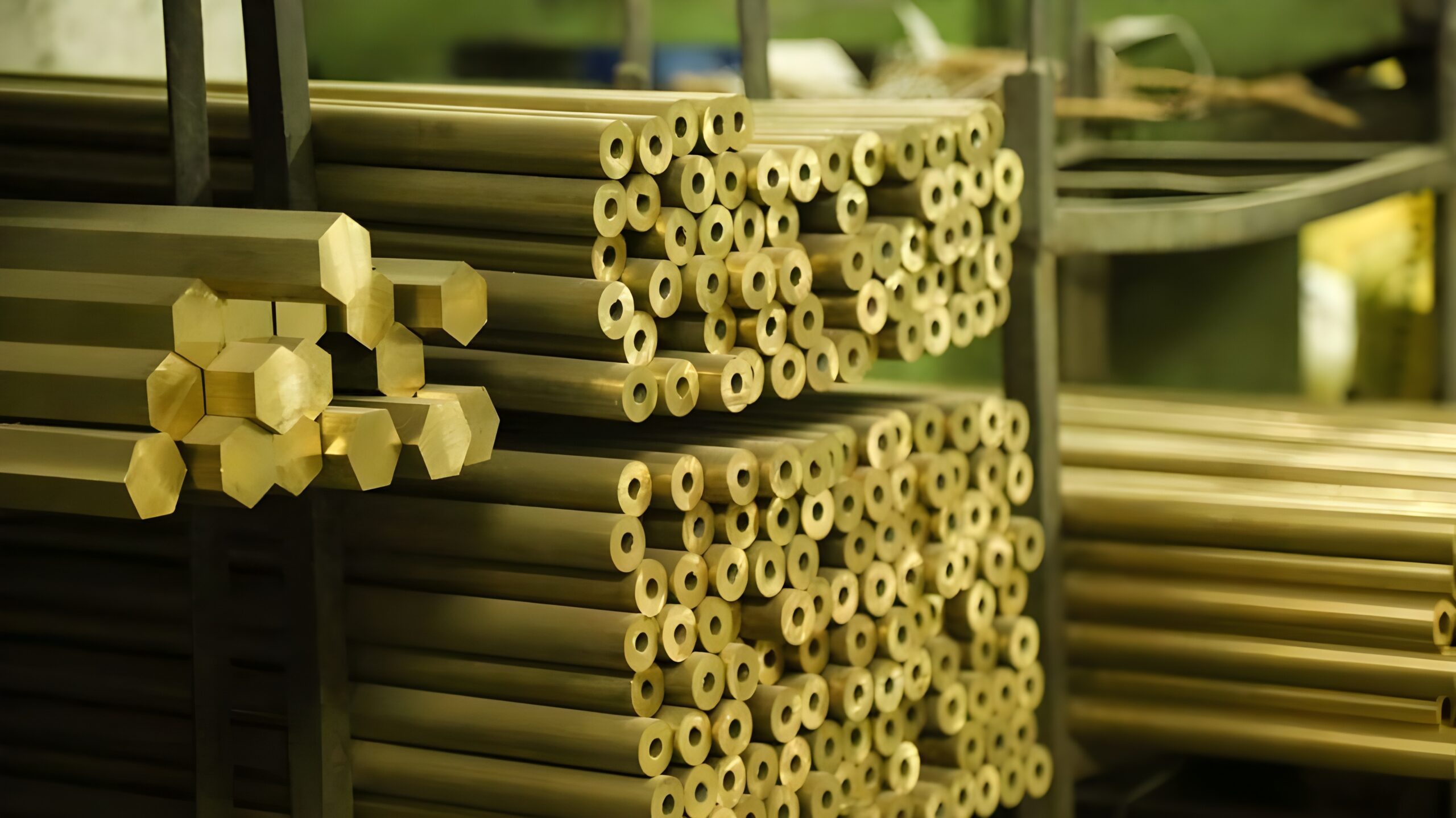60/40 Brass
- Home
- >
- Lead Free Brass
- >
- 60/40 Brass

60/40 Brass
Lead-Free Brass 60/40, also known as Muntz Metal or Yellow Metal, is a copper-zinc alloy known for its high strength and excellent corrosion resistance. This brass alloy is used in various applications that require durability and good mechanical properties.
Composition:
- Copper (Cu): 60%
- Zinc (Zn): 40%
- Lead (Pb): <0.09% (Lead-Free)
Grades
IS 4170/67:
- Indian Standard for copper and copper alloys.
- Designation for 60/40 Brass under Indian standards.
ASTM C36500:
- ASTM Standard Specification for 60/40 Brass.
- C36500: Designation for 60/40 Brass in this standard.
CZ109:
- British Standard designation for 60/40 Brass.
- Used for general engineering and industrial applications.
JIS H3250 C2800:
- Japanese Industrial Standard for copper and copper alloy seamless tubes.
- C2800: Japanese designation for 60/40 Brass.
Properties:
- Corrosion Resistance:
- Excellent resistance to corrosion in marine and industrial environments.
- High resistance to dezincification and stress corrosion cracking.
- Mechanical Properties:
- Tensile Strength: Typically around 350-600 MPa.
- Yield Strength: Approximately 150-250 MPa.
- Elongation: Generally around 15-35%, indicating good ductility.
- Hardness: Moderate to high hardness, with a typical Brinell hardness number (HB) of around 100-150.
- Thermal and Electrical Conductivity:
- Good thermal conductivity, making it suitable for heat exchangers and other thermal applications.
- Moderate electrical conductivity, less than pure copper but sufficient for many industrial uses.
Applications:
Marine Applications: Used extensively in shipbuilding, propellers, and other marine hardware due to its excellent resistance to seawater corrosion.
Industrial Applications: Employed in various industrial equipment, including fasteners, valves, and fittings requiring good mechanical strength and corrosion resistance.
Architectural Applications: Utilized in decorative and architectural elements due to its aesthetic appearance and workability.
Plumbing and Heating: Used in plumbing systems, fittings, and valves.
